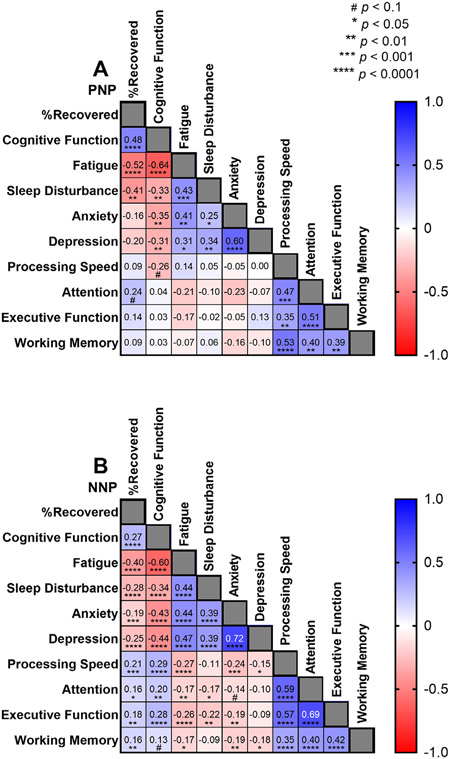FIGURE 4:
Correlation coefficients between subjective impression of recovery, quality of life PROMIS measures and NIH toolbox cognitive tests. (A) In PNP patients, subjective impression of % recovery compared to pre-COVID-19 baseline correlated moderately with PROMIS Qol measures of cognition, fatigue, and sleep disturbance. PROMIS cognition showed a strong negative correlation with fatigue, and PROMIS fatigue correlated moderately with sleep disturbance and anxiety. There was a trend for negative correlation between PROMIS cognition and processing speed. There was no correlation between the subjective impression of cognitive function and NIH toolbox measurements in attention, executive function and working memory. This suggests impaired insight of objective cognitive function difficulties. (B) In NNP patients, subjective impression of % recovery compared to pre-COVID-19 baseline correlated moderately with PROMIS Qol measures of cognition, fatigue, and sleep disturbance. QoL PROMIS measures correlated with each other as well as NIH toolbox cognitive tests. The worse the impression of cognitive function, the worse processing speed, attention, executive function and working memory, which was statistically significant in all domains.

